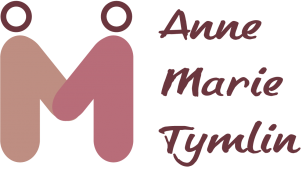I am sure most of us are familiar with the little red hen in the following excerpt. I use it to illustrate how we should all recognise those amongst us who are workers and those who are not. I grew up in a family where we were all encouraged if not pushed to volunteer and get involved in organisations that helped others. This is a good trait and although I would encourage others to do likewise, I now understand the importance of taking care of ourselves while doing this.
The Story of Little Red Hen by Pie Corbett
Once upon a time there was a little red hen who lived on a farm. Early one morning she woke up and went outside. There she found some corn. “Who will help me plant the corn?” said the little red hen.
“Not I,” said the bull.
“Not I,” said the cat.
“Not I,” said the rat.
“Oh very well, I’ll do it myself,” said the little red hen – and so she did!…….
As professionals, who are committed to look after others daily, it is imperative that we put in place a strong self –care strategy. Self-Care is no longer an ideal to strive for, but an ethical and professional must for all in the caring professions.
This takes commitment and dedication but compassion fatigue, and burn-out are all too common in the caring professions.
Compassion Fatigue (CP): This refers to the emotional, physical, or spiritual exhaustion that helpers can experience through repeated exposure to the emotional pain of clients. Symptoms include emotional distancing, intrusive imagery, and loss of hope.
Secondary Traumatic Stress (STS): a condition similar to PTSD but is a result of exposure to another person’s traumatic material rather than direct exposure to trauma. Signs include Flashbacks; Triggers/Buttons others may push. Feelings of being challenged by clients. Experiencing nightmares.
Vicarious Traumatisation: The transformation of the inner experience of the helper that comes about because of empathic engagement with the client’s material. (McCann & Pearlman (1990) Burn Out: Lost Energy, lost enthusiasm, negative cynicism. A loss of confidence in yourself (Carol Wogan Psy. D.R.N)
Exercises:
Self-Reflection. Make notes of small victories Find your own support system amongst your peers Have you thought of supervision? Use mindfulness Breathing (e.g.: Seven Eleven Breathing, Breath in for seven, hold for eleven, breathe out) Explore Mindfulness Living Use meditation or imagery for relaxation Challenge unhelpful thought that intrude on your peace of mind Maintain structure in your place of work Maintain a healthy lifestyle Take time for family and friends
Balancing Strategies
Hold your own welfare as an important obligation to provide competent other care. Continually monitor the balance between your welfare and those for whom you provide care. Raise this awareness during highly stressful personal times or excessive work pressures. Be on guard for abandonment of self (co-dependency) e.g.: “They really need me” or “I cannot be done without”. (Schovolt, Trotter-Mathison) (2011) Think Ethical Imperative: It is not something nice to do if you have time; it is an essential part of Professional Identity. (Barker, Barher, Elman 7 Schoener (2007)

